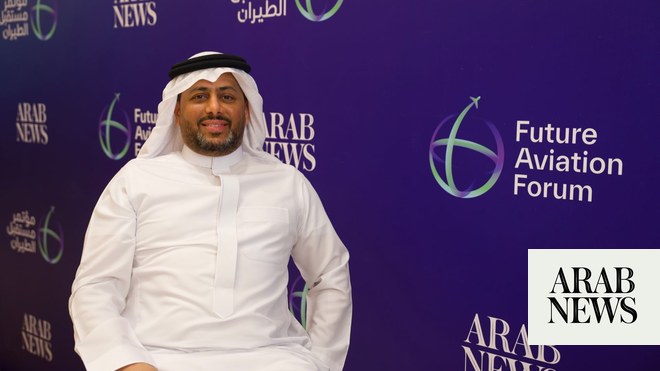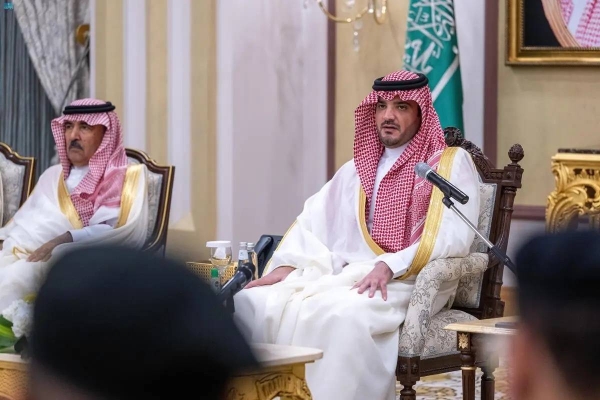
DUBAI: Founded in 1907, Damas Jewellery is one of the leading jewelers in the Middle East.
After joining the house as chairman and CEO in April 2020, Luc Perramond turned, restructured and repositioned the business to create a leaner organization.
A shift in consumer preferences increased during the pandemic and was accompanied by a change for the brand and the industry.
“The future is with strong brands,” said Perramond. “People want brands and the safety of a brand umbrella. They want the emotional connection and the brand to stand behind their products.”
A design-led jewelry house, Damas is one of the few brands from the region to compete with international labels such as Cartier and Bulgari. The company’s competitive advantage lies in its positioning, enabling it to cater to a broader customer base. Damas operates 150 stores across the Gulf region, with close to 3 million customers in the Middle East.
One of the brand’s most successful collections is Alif, the first letter of the Arabic alphabet. Launched in October 2021, Alif was created to recognize the Arab women representing the region’s future.
In that spirit, Damas brought together women of substance who stood out for their achievements in sports, business and politics, highlighting their capabilities and role in a changing society.
The brand’s current ambassador is Lebanese actress Nadine Njeim.
“We are jewelers, and our clients are all women. We need to understand our customers,” Perramond said. “Nonetheless, preserving the brand identity and building its DNA goes through empowering women in-house as well.”
Damas saw its women participation rate increase in the region, particularly in Saudi Arabia, up from 13 percent recorded in 2020 to 35 percent in 2022.
Damas’ aim is to be recognized as the leading house of jewelry design in the Middle East and be “the alternative to international brands, the go-to for all the Arabs across the region,” Perramond said.
Dynamics of the luxury market
Globally, the luxury market across its various segments has been resilient in the past six months, despite the rise in inflation, as it continues to target customers with higher disposable income.
In the Middle East, the industry is expected to grow faster than in Europe. Dubai is a magnet for high-net-worth individuals, with “around 4,000 millionaires expected to visit the emirate in 2022. The offer of luxury brands in Dubai is strong, and the economic environment is favorable,” Perramond said.
Damas operates 20 stores in Saudi Arabia and is planning to increase its footprint in Jeddah and Riyadh. The latter, growing at a double-digit pace in line with Vision 2030, is home to Damas’ flagship store.
“Saudi Arabia will be the fastest-growing market in luxury in the next five years in the region,” Perramond said, with Damas’ next frontier being Egypt, a country where “we have a long history and the brand is recognized, but we need to rebuild it.”
Lab-grown versus mined diamonds
Lab-grown diamonds will be part of the future of the diamond business. Already an important phenomenon in the US, particularly over the past 10 years, it is also gaining popularity in Europe and the Middle East.
Damas launched a collection last year called GAIA, made with lab-grown diamonds, which will have a second launch in October 2022.
“Lab-grown is real and certified diamonds. We need to raise consumer awareness on this front due to existent misunderstandings,” Perramond said, highlighting the benefits of this type of diamond, including more ethical production processes.
Lab-grown diamonds are about 40 percent cheaper than mined diamonds, attracting more customers, not only millennials but also a customer base looking for safer, more sustainable products.
“Lab-grown will not compete with mined diamonds. Rather, they are going to enlarge the market,” he said.
Marketing strategy
“Around 75 percent of the customers in the business look for information online and decide before going to the store. There is a culture of shopping in malls in the Middle East,” Perramond said.
Reaching customers from the comfort of their homes is a continuing challenge for the jeweler to grow its market share through an omnichannel strategy and relying on influencer marketing.
Damas has adopted a digital-focused strategy, allocating 80 percent of its investment to digital. The jeweler counts more than 1.2 million followers on social media, growing its follower base by 20 percent a year.
“We generate an engagement of quality, and we are currently leaders in terms of ‘noise’ and #1 on Snapchat in Saudi Arabia for jewelry,” Perramond said.
The group represents international brands in the region, such as Mikimoto, Graff and Djula, for which Damas is working with the Kuwaiti influencer, Ahood.
Damas’ CEO stressed the importance of trust as the key to success in the business.
“Jewelry is an ongoing event, where you need to follow your clients and to be present during every moment of their life,” he said.












